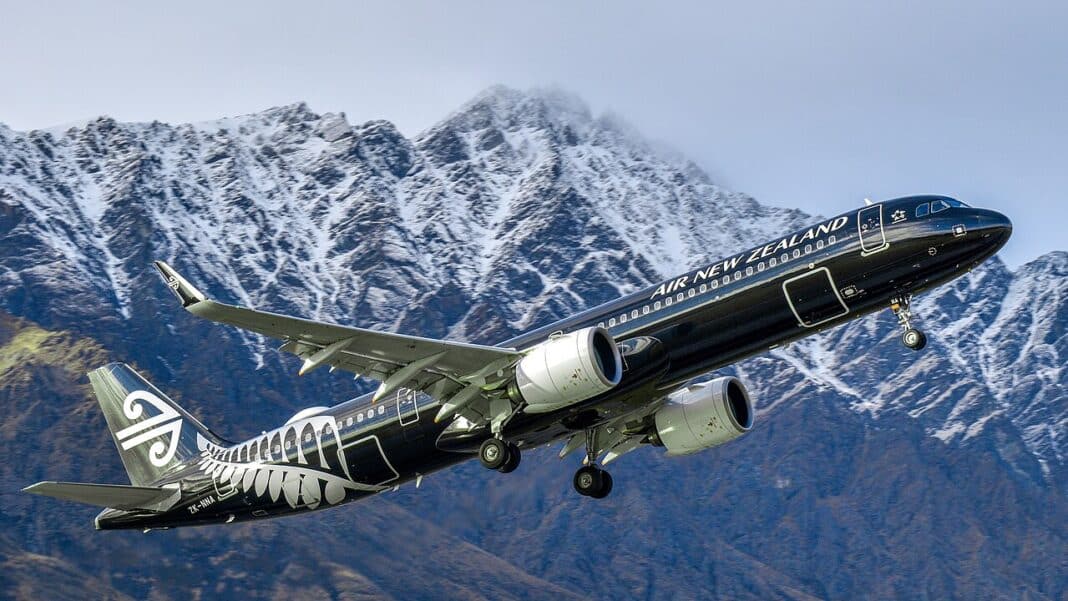Could the next generation of Air New Zealand’s fleet be powered by sustainable aviation fuels (or SAF) from abundant working forests?
That is the question posed by a new study supported by New Zealand’s flagship carrier and US-based LanzaJet. The study claims that the market for SAF—woody waste residues and low-value wood products—could generate NZ $430 million in additional revenue every year and lead to massive employment opportunities in the North Island.
However, it said “significant investment” would be needed and is now tapping the government to invest into the rapidly expanding industry.
Air New Zealand’s chief sustainability and corporate affairs officer, Kiri Hannifin, said the findings were “promising” and could reduce its long-term dependence on long-haul jet fuels.
“These initial findings support that alternative jet fuel can be produced here in Aotearoa from our locally-grown woody waste, which is very positive for a country that is heavily reliant on long-haul aviation and trade and currently imports 100% of its jet fuel,” Hannifin said.
The research comes at a time when the global supply of SAF—which is also helping global shipping decarbonise—has struggled to keep up with airline demand. The International Air Transport Association estimates that SAF accounts for just 0.53% of aviation needs.
“Alternative jet fuel such as SAF is currently the only real tool available to address carbon emissions from long-haul aviation, so it’s crucial for connecting New Zealanders, tourists, and exporters with the rest of the world,” Hannifin said.
Air New Zealand believes government support is needed to support SAF manufacturing and supply in New Zealand. Hannifin said one fundamental way for the government to support SAF manufacturing would be to mandate fuel companies to provide SAF to airlines.
“We’ve seen that happen now in almost every jurisdiction we fly to,” Ms Hannifin said, adding that incentives were another way for the government to potentially provide support:
“I know that the suppliers or the manufacturers would work with the government to determine what would be best for the government, New Zealanders, investors, and suppliers.”
Last year, Emirates flew the world’s first flight with 100% SAF!
In November, Emirates became the first airline to operate an Airbus A380 using Sustainable Aviation Fuels (SAF). The flight – the first to use a 100% drop in SAF fuels in one of its engines – took off from Dubai last night and resulted from a collaboration between Emirates, Airbus, Engine Alliance, Pratt & Whitney, Virent and … Nestle!

Last year, Wood Central revealed that the market for SAF is enormous. It is fuelled by global aviation’s commitment to achieve “net-zero emissions by 2050″,” driven by 65% of emission cuts expected to come from using sustainable fuel.
Significantly, SAF is a significant opportunity for global forestry, with the International Energy Agency supporting a shift away from bioenergy produced by food crops to organic waste streams, forest and wood residues, short-rotation woody crops and forestry plantings:
“As well as allowing a much greater level of bioenergy crop production on marginal lands, short-rotation woody crops can produce twice as much bioenergy per hectare as many conventional bioenergy crops,” it said. “Sustainably managed forest plantations established outside of existing forested land can increase carbon stocks while at the same time sustainably producing biomass.”
- To learn more about the push to use forest and woody waste to create SAF, click here for Wood Central’s special report.






